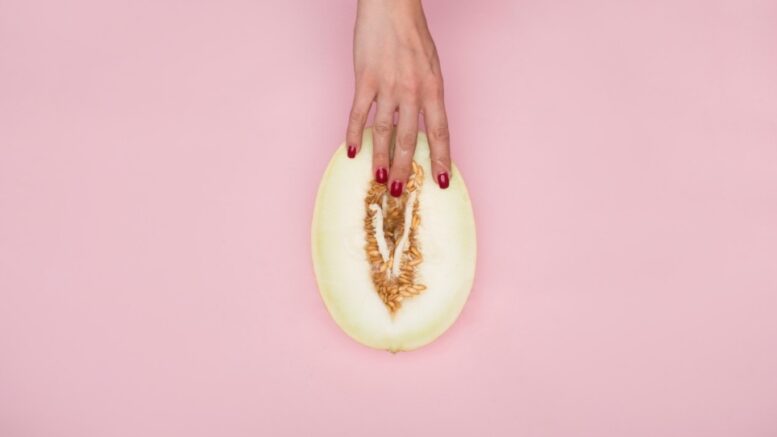Maintaining a healthy vulva and vagina is key to preventing irritations and infections in these sensitive parts. Many women often ignore vulvar care, dismissing it as insignificant. But the vulva is the opening to the vagina and the rest of your reproductive part, and poor hygiene practices could easily introduce harmful infections into the area.
The vulva is the folds of skin that lead to the vaginal opening. It lies outside the vagina and consists of two parts: the outermost folds are called the labia majora, while the inner, smaller folds are the labia minora. Being the most exterior part of the genital organs, an unhealthy, irritated vulva may cause the other organs to become unhealthy and irritated as well.
Here are some vulvar care tips:
Personal Hygiene
This often comes to mind first when we think of vulvar care. Your routine vulvar hygiene practices could make or mar your vulvar health. For instance, scrubbing your vulvar skin with a washcloth or net sponge may irritate it easily and predispose it to be infected. Likewise, using hot water, bath soaps, gels, feminine cosmetic products, such as sprays, perfumes, and over-the-counter ointments and creams could be setting the sensitive area up for irritation and skin damage.
A fragrance-free soap with lukewarm or cool water may be all you need to clean your vulvar area. You do not need a washcloth or loofa to clean your vulva, cleaning with your hand is just enough. After cleaning, pat the area dry with a towel, rather than rubbing it. You may apply a small amount of extra virgin olive oil or coconut oil to moisturize the area.
Mind the Laundry Products You Use
To keep your vulva healthy and dry, you should be mindful of the wide range of laundry products on the market. To keep the vulvar irritant-free, avoid detergents that contain dyes, enzymes, perfumes, allergens and other toxic chemicals on your underwear or any clothing that comes in contact with your vulva. Many of these products contain talc, bleach, parabens, and phthalates, which cause skin irritation. You could use baby detergents that have all-natural ingredients, and are free of these toxic irritants.
Other laundry products to avoid include stain removers and fabric softeners. These products contain fragrance mixes that can irritate your vulva, predisposing it to infections.

Change your Clothing
Some clothing materials can easily inflame the vulvar skin and cause skin irritations. Clothing made of synthetic fabrics and Spanx-type garments fall within this category. Further, tight clothing, such as full pantyhose and panty girdles, limit airflow to your vulva and trap heat and moisture. Further, after an exercise session, take off your exercise clothing as soon as you can then have a warm bath.
The best material to keep your vulva healthy is cotton underwear with a white crotch. Cotton is a breathable material that allows air in and keeps moisture out of your sensitive area. Avoid wearing nylon or other synthetic materials. If you have to wear nylons or leggings, wear them with cotton underwear. You can ONLY wear nylon underwear with a cotton crotch if you can cut away the nylon covering the cotton crotch.
Lastly, sleeping without underwear or loose-fitting boxers is advised to maintain airflow to the vulvar area.
Sex and Birth Control
Dryness in the vulva could make sexual intercourse painful and discomforting. This could potentially irritate your vulvar skin; however, you can subvert this by using a lubricant, such as pure vegetable oil or olive oil. These oils are natural and contain no chemicals that can irritate the vulvar skin. Water-based lubricants, such as K-Y jelly, are not recommended because they contain skin irritants and could dry off before intercourse is over.
If you want to use birth control options, watch out for those methods that could irritate the vulvar skin, including contraceptive jellies, sponges, and lubricated condoms. Speak with your healthcare provider for guidance.
Vulvar Care After Childbirth
Childbirth puts a lot of strain on your lady parts: during childbirth, your birth canal—which includes your cervix and vagina—stretches to accommodate your baby as it descends. As a result, you may sustain tears, cuts, or bruises to your vulva and vagina after delivery. In cases where the birth canal may not be wide enough to accommodate the descent of your baby, your midwife or doctor may make an incision through your vulva and vagina to widen it further. These leave you with so much discomfort, pain, and swelling in the area.

Many women douche to relieve the pain and swelling in the area. This is an unhealthy practice that will only worsen the inflammation.
To manage vulvar injuries after delivery, you can give yourself a Sitz bath in your bathtub or a plastic kit filled with warm water. Step into the tub and soak your perineum for up to 15 minutes, then pat dry with a clean cotton towel. This procedure soothes the pain and swelling in the vulva and helps to expedite the healing of the injuries or incisions.
These injuries may, however, distort the appearance of your vulva and potentially impair sexual intercourse with your partner afterward. Not to worry, vaginal rejuvenation surgery may help to restore the appearance, symmetry, and tone of your vulva after these childbirth-related injuries.
Final Takeaways
In caring for your vulva, there’s always such a thing as caring too much. For example, when you scrub it ‘clean’ with hot water and nice-smelling soaps or apply nice fragrances and feminine sprays, you may be doing your lady parts more harm than good. While these sound like ‘good hygiene practices, they are very harmful ways of caring for your lady parts. So, keep it simple; learn the dos and don’ts of keeping your vulva healthy and clean.
Author’s bio
Dr. Okhifun is a passionate medical doctor, with nearly a decade of experience as a general practitioner. His passion for medical education led to his journey in medical writing. He has a wealth of experience creating health content for hospitals and medical centers, health organizations, telemedicine platforms, wellness organizations, medical tourism publications, drug addiction websites, and websites focused on nutrition and nutraceuticals. Currently, he is a part of the team at Labiaplasty NYC Gynecology Clinic.
